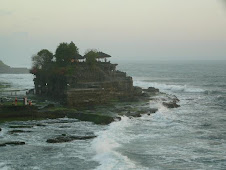
The go-go bars are empty and sex is on sale at half price as Bangkok's infamous red light districts suffer from a blockade of the capital's airports.
"It's high season, but now it's like low season," said Nan, a scantily-clad hostess at one deserted nightspot in the Thai capital's notorious Patpong area.
An old man played guitar and sang along to a karaoke machine inside. Outside, beneath the pink neon, about 10 women in almost identical low-cut dresses tried to drum up trade.
Although anti-government protesters have ended an eight-day siege of Bangkok's airports, the effect of Thailand's ongoing political chaos on the tourism industry is devastating.
Sex tourism is no exception. Patpong depends on foreigners to keep afloat, but as the 350,000 air travellers stranded by the airport closures rush to leave Thailand, replacements are not coming in.
"Now Thailand has a problem -- no customers," said Lam, a man who works for Nan's bar, luring tourists in off the streets by posing as a friendly Thai offering unsolicited advice on good places to go.
Lam is hopeful the trade will return to Patpong, a lurid strip of live shows and sleazy nightlife.
"It is because of the airport, but now the airport is all clear," he said.
The Tourism Authority of Thailand is not so optimistic.
The group expects incoming travellers in 2009 to be half the 14.8 million the kingdom saw last year, with word of the protests causing tourists considering a trip to Thailand to book elsewhere.
At the normally standing-room-only "ping-pong" shows, five or six women swarm each new arrival. Some are following the example of Thailand's resorts and luxury hotels by offering discounted rates.
Prostitutes offer two hours of sexual services for 800 baht (about 22 US dollars) instead of the normal 1,500 to 2,000 baht that would cost.
The airport closures also hurt Bangkok's other entertainment options, such as the famous "ladyboy" cabaret shows.
"The shutdown of the airports seriously affected our business," said Nipon Boonmasuwaran, sales and marketing manager of the Calypso show in Bangkok, where flamboyantly-dressed transvestites lip-sync and dance to famous tunes.
"Our guests have dropped 90 percent -- we have less than 50 guests in our 350-seat theatre," Nipon said.
The Calypso also cancelled its second daily showing during the November 25-December 3 chaos, when images of frustrated tourists trying to flee Thailand from a military airbase beamed around the world.
"We handed out thousands of free tickets for the stranded hotel guests in order to entertain them and hope that they would buy drinks -- otherwise we will have no business," he said.
"Since re-opening of the airports business is trickling in but very slow," adding that guests normally came from Europe -- especially the Netherlands and Belgium -- and Asian countries such as South Korea, Japan and Singapore.
The blockade may have brought in some extra trade.
American tourists Lisa Richardson, 30, and Michael Latham, 29, said they would never have come to Patpong had they not been stranded in Bangkok.
"Being stuck for an extra week convinced us to spend time and money on things we wouldn't have normally -- ping-pong shows for example," said Latham.
But he said that he felt for Thais whose livelihood was being hit, adding: "they're hurt so much worse than we are and it just hurts to see," Latham said.
Thailand was until 2005 the world's leading destination for sex tourists, when its crown was taken by Brazil, according to Interpol.
Although prostitution is officially illegal in Thailand, estimates for the number of sex workers range from 80 000 to two million women and men.
At her Patpong bar, Nan says she hopes the tourists return soon, as she sends the money she earns back to her family near the Cambodian border.
"Maybe in 15 days, a month it comes back," she said.
article link by oddnews courtesy of watoday.com.au
 download latest Opera for PC or Operamini for handphone
download latest Opera for PC or Operamini for handphone 


